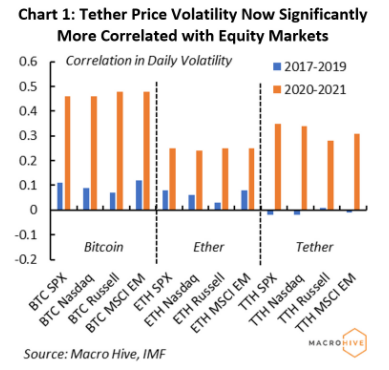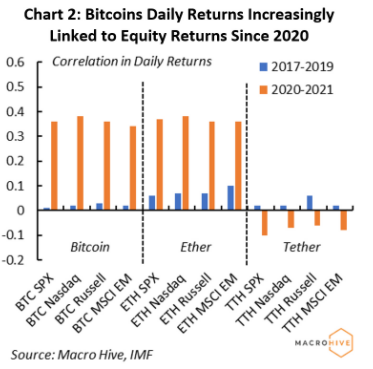
How should investors position for high inflation and policy normalization?
@macrocredit gave us his thoughts on a recent #MacroHive exclusive.
Here is what we learned 👇🧵
@macrocredit gave us his thoughts on a recent #MacroHive exclusive.
Here is what we learned 👇🧵
1) The Fed, the ECB and BoE are behind the curve. Normally, a tightening cycle would start during rising growth momentum. This time, however, central banks are likely to tighten as fiscal stimulus fades.
2) Markets are currently pricing four Fed hikes this year, but more might be needed to tame inflation as geopolitical risks and energy prices continue to rise.
This means the Fed might have to hike faster, suddenly slamming on the brakes throwing investors in the wind.
This means the Fed might have to hike faster, suddenly slamming on the brakes throwing investors in the wind.
3) Price action so far reflects an emergency rotation from crowded growth assets into unloved value assets, which benefit from inflation and higher rates. After many years of widespread asset gains, we are preparing for volatility and dispersion in 2022.
4) In the US, the Fed expects inflation to remain above 2% until 2024. We think US CPI will remain persistently above target at around 3-4%, even into year end, due to both supply side constraints and, to quote Fed Chair Jerome Powell, ‘very, very strong’ demand.
5) We expect supply chain issues to persist. The lead time for chips is still rising, there are long wait times at LA ports, and Maersk recently reported continued global delays.
6) Monetary policy normalisation has key portfolio implications.
First is a rotation from low-volatility, high-multiple assets into ones that can withstand higher rates or higher prices, like financials and commodity producers.
First is a rotation from low-volatility, high-multiple assets into ones that can withstand higher rates or higher prices, like financials and commodity producers.
7) Second is a potential regime shift in bond-equity correlations due to persistent inflation volatility. This might favour barbell portfolios, for example, over the typical balanced portfolio or its leveraged version, risk-parity.
8) Third, after many years of subdued volatility, policy normalisation might raise tail risk in both rates and equities.
The exclusive also covered: COVID Restrictions, Inflation Outlook, DM Central Banks and the now fading Global Fiscal Stimulus. You can read the full report by entering your email here:
macrohive.com/hive-exclusive…
macrohive.com/hive-exclusive…
• • •
Missing some Tweet in this thread? You can try to
force a refresh








